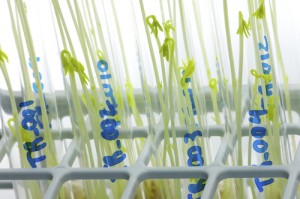Safety Concerns A Problem For GM Crops
 Debate regarding the safety of GMO’s still rages on. On one side, there are the biotech companies try to promote the virtues and benefits of using GMO’s. On the other side, there are activists and scientists who are saying that these genetically modified crops require more extensive safety testing to make sure that their use does not come with disastrous consequences. Trying to hear what both parties have to say are the consumers and the general public who might either benefit or suffer the consequences of using genetically modified products.
Debate regarding the safety of GMO’s still rages on. On one side, there are the biotech companies try to promote the virtues and benefits of using GMO’s. On the other side, there are activists and scientists who are saying that these genetically modified crops require more extensive safety testing to make sure that their use does not come with disastrous consequences. Trying to hear what both parties have to say are the consumers and the general public who might either benefit or suffer the consequences of using genetically modified products.
If the standard safety testing protocols were only used before GM crops and other related products were introduced in the global market, there wouldn’t have been such an intense debate regarding GMO’s. One key factor that concerns many people is the safety of the various GMO’s now in use on a global scale. Instead, many biotech companies seem to be haphazardly introducing GM crops into the market with disregard for safety due to lack of safety testing. It is because of this that a community of scientists from the European Network of Scientists for Social and Environmental Responsibility or ENSSER issues a joint statement saying that GM foods have not yet been proven safe. This is in opposition to some biotech companies issuing statements that a scientific consensus has been reached regarding the safety of GM foods.
One of the signatories in the joint statement, Dr Raul Montenegro, biologist at the University of Cordoba, Argentina highlighted the lack of analysis in four main issues related to GMO safety.
One of the safety concerns include the potential residues of commercial chemical pesticides as well as the insecticidal proteins the GM plant may produce. Another issue is with regards to the chemical changes that each commercial pesticide used in GM crops undergoes inside the pesticide containers and when mixed with other chemicals after being released into the environment. Third issue revolves around the high level of commercial pesticides and insecticidal proteins that accumulate in the soil and exposed to other plants, homes and people. And lastly, GMO agriculture tends to reduce the natural biodiversity of plants in the environment. Countries where GMO’s are used usually begin to have less and less natural biodiversity of plants as compared to countries that do not permit GMO agriculture.
The scientists noted that GMO agriculture flourish in countries where safety monitoring standards for GM crops have not yet been established. These countries fail to monitor the effects and consequences of this type of agriculture with regards to people being exposed to GM-related chemical residues in the environment and the changes in natural biodiversity. Because of this lack of safety protocols, the countries may realize the consequences only after it is too late. Currently, the governments and the biotech companies are categorically denying that there is a problem with regards to using GMO’s. This, in itself, is the main problem right now, with people in authority trying to turn a blind eye for the sake of future profits. That is not really a good situation to be in, especially on the side of consumers.
Genetic Modification – GuideTo.Com
Recent Comments